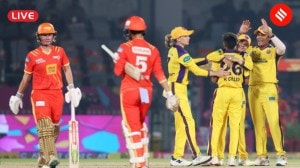Too quiet to call
Travels across Pakistan: a mosaic of political strongholds and curious apathies.

Travel from Karachi to Khyber or from Lahore to Quetta, and voter ambivalence is a safe verdict to pronounce on the mood prevailing across the country days before the people go to the polls. As seen firsthand, the reasons for the apparent apathy vary: cynicism that elections will be rigged, resonance of boycott calls from several quarters, depression over terrorist attacks and fear created by targeted killings of opposition candidates, especially Benazir Bhutto. It is a sign of the reigning cynicism that despite opinion polls showing a surge of support for the opposition PPP and PMLN, many around the country say it8217;s a foregone conclusion that as long as the US backs President Pervez Musharraf, he will go on to pack the next parliament with his supporters, with only a change of faces, if at all.
Thus, big rallies are out; only corner meetings remain. Lawyers like Pakistan Bar Association President Aitzaz Ahsan, ousted judges and opposition candidates who are seen to be threatening remain locked up. Where there is any action, Bhutto8217;s People8217;s Party and the Sharifs8217; Muslim League are leading on a nationwide basis. Regional parties like the leftist Awami National Party of the heirs of Khan Abdul Ghaffar Khan, the pre-independence Sarahadi Gandhi, in the Frontier province, and the Muttahida Qaumi Movement of Altaf Hussain in urban Sindh have their own strongholds. Most ethnic-nationalist and religious parties, as part of the APDM alliance, are boycotting the election. Of these, significant parties worth any number seats in parliament are the Jamaat-i-Islami, the Balochistan Nationalist Party and the Jamhoori Watan Party of the slain Baloch leader Nawab Akbar Bugti. Imran Khan8217;s PTI is also a part of the APDM, though it just about managed one seat in the last election.
On the streets of Peshawar, it is clear that the contest in the Frontier8217;s capital is between the PPP and the ANP. The outgoing six-party religious alliance, the MMA, stands discredited for the past five years of misrule, in which emphasis was placed only on enforcing Islamic law. The promise was stolen by the Supreme Court which held that the Sharia Bill passed by the Frontier legislature contravened the Constitution.
The Frontier is largely a two-language province. Pathans form the majority but many districts, as also Peshawar city, have a Hindko-speaking majority, the cousins of Punjabis. In the Hindko districts, the ANP has little appeal and the real contest is between the Sharifs8217; League and the PPP. Parts of the Pashto-speaking districts are fractured by divisions between two factions of the PPP, with the breakaway Sherpao faction having been part of the last ruling coalition. With the mullahs largely out of the fray, the ANP is set to emerge victorious in such areas. In the southern Frontier, Maulana Fazlur Rahman8217;s JUI will retain some of the seats in his native district if he is able to arrest the swelling sympathy for Bhutto8217;s party.
The northwest of the Frontier comprises the snowbound Chitral valley, where the Khwar-speaking majority practises Ismaili faith. This has traditionally been a PPP constituency, with the Afghan settlers having upset the apple cart in the last election, but who have since returned to Afghanistan. The district of Swat is the scene of an insurgency led by the fanatic Mullah Fazlullah and backed by local smugglers; fierce fighting and imposition of curfew there over the past few months make low voter turnout and violence likely 8212; that is, if elections are held there at all. The erstwhile tourist haven generally belongs to the ruling Muslim League, owing to Ayub Khan8217;s son8217;s matrimonial ties there.
The rest of the Frontier is surrounded by federally and provincially administered tribal areas, where local maliks traditionally strike a deal with Islamabad, which will be hard to do now because of the local Taliban8217;s insurgency in North and South Waziristan, bearing the brunt of the US-led 8216;war on terror8217;.
In Punjab a strong anti-establishment sentiment prevails all across, save perhaps the pro-Musharraf Chaudhry cousins8217; home district of Gujrat and those of their kith and kin. The cousins control the king8217;s party, the PMLQ. Most big cities will fall either to the PPP or the Sharif League. The Chaudhries8217; image stands further damaged by the highhandedness of their chosen caretaker administration and their big-money-bought infiltration into the local district governments, a mechanism to devolve power introduced by Musharraf.
The PPP is kicking off its election campaign in Punjab on February 14 and will have only three days in which to conclude it; the Sharifs and the Chaudhries have been at it for longer. The Sharifs8217; succinct message that 16 crore people and not 16 generals decide who rules Pakistan is being heard loud and clear, which may dampen public support for the PPP8217;s stance of working with the generals instead of sending them back to the barracks.
In a fair election, Sindh is a two-party fiefdom where the dominant PPP in the rural areas and the MQM in the urban centres will have little opportunity to lock horns. The erstwhile ruling Muslim League8217;s chief minister, Arbab Ghulam Rahim, like his Chaudhry mentors in Punjab, is also busy working through the local and the caretaker government-grid to get desirable results.
Balochistan has two dominant factors: feudal sardars on the right side of the government and their boycotting counterparts cherished as real leaders. The trouble is, the sardars keep switching sides, so that those backed by Islamabad rule at the cost of the others. The opposition has little wherewithal with which to stop the people from going to the polls.
Balochistan is a three-language province, with a large number of settlers from other parts of the country, the ousted chief justice Iftikhar Chaudhry being one such settler. The main groups are the Baloch, Pathans and Brahvis, with a sprinkling of Persian-speaking Hazaras and Punjabis. In the Makran coastal area Gwadar port bordering Iran, two impoverished Baloch groups represent a non-feudal setup: the mainstream Sunni Muslim and the adherents of the Zikri sect. The former largely support Baloch nationalists; the latter are pro-Islamabad. The two are equally represented in the population. Given the boycott call by the nationalists, the pro-establishment candidates are set to sweep the province, with a few mullahs going it alone despite the boycott call by Islamist parties.
Overall, there has hardly ever been a more lacklustre election in the last 60 years.
The writer is an editor with 8216;Dawn8217;, Karachi
murtazarazvihotmail.com
- 01
- 02
- 03
- 04
- 05































